A lot of people have trouble finding ways to start conversations with a friend online, over text, or even in person. Whether you’re trying to stay in touch with people, reconnect with old friends, or make new friends, the first step is to start a conversation. If you feel a lot of pressure or overthink things to say when starting a conversation, it can help to have some examples of good conversation starters with friends.
This article will provide practical tips and examples of ways to start conversations with friends through text, phone, social media chat, or in-person.
Sections
- How to start a conversation with friends
- Good conversation starters for new friends
- Good ways to start a conversation with an old friend
- Good conversation starters for friends you meet online
- General conversation starters for any situation
- Common questions
How to start a conversation with friends
If you struggle with not knowing what to say or how to begin a conversation, you’re not alone. Conversation skills don’t come naturally to a lot of people, and starting a conversation is sometimes the hardest part. Having examples of things you can say to get a conversation going can be helpful, but it’s also a good idea to adjust your approach to the situation.
Below are some examples of conversation starters for new friends, old friends, and friends you meet or communicate with online.
Good conversation starters for new friends
Because you feel less certain about whether a new friend likes you, it’s normal to worry more about reaching out to them.[1] While the ‘getting to know you phase’ sometimes includes awkward conversations, there are some tips to making these early interactions feel more natural. Below are some examples of good conversation starters for new friends.
1. Build off of your last interaction
One of the easiest ways to start a conversation with someone you’re trying to become friends with is to reference something from your most recent interaction with them. For example, you could shoot a text or message a friend about something you recently talked about or did together.
Here are some examples of messages to build off of your last interaction:
- “Good workout this morning. Glad we’re getting into a routine!”
- “You mentioned you had an interview last time I saw you. How’d it go?”
- “Hey, what was the name of that show you recommended?”
- “Great talking to you the other day! I took your advice and checked out that restaurant… it was awesome!”
- “Thanks again for your help at work the other day. It really helped!”
2. Use a simple greeting followed by a question
The best way to start a conversation with a new friend is sometimes just to start with a simple greeting like “Hey!,” “Good morning,” or, “Good to see you!” If you don’t know where to take the conversation next, you can sometimes follow a greeting with a friendly question. Friendly questions are ones that show interest in the other person without getting too personal or invasive.[2]
Here are examples of good ways to open a dialogue using the greet and ask tactic:
- “Hope you enjoy the time off. Any fun plans for the holiday?”
- “Happy Monday! How was your weekend?”
- “Hey! Nice to see you back. How was your vacation?”
- “Good to see you at the gym the other day! What’s new with you?”
- “Good morning! Did you get a chance to relax over the break?”
3. Share an observation to open a conversation
Being observant can sometimes help you come up with things to say and find natural conversation starters. If you feel like there’s nothing to talk about, try looking around and tuning into your surroundings to find a conversation starter.[2] For instance, commenting on the weather, something new in the office, or a person’s outfit are all easy “ins” to a conversation.
Here are some tips on how to use observations to start friendly conversations:
- If the observation is about them, make sure it’s positive (e.g., “I love your boots!”)
- Comment on a shared struggle (e.g., “That meeting was soooo long”)
- Notice something new or different (e.g., “Did you get a haircut?”)
- Fall back on small talk about the weather (e.g.,“It’s such a dreary day out!”)
Good ways to start conversations with old friends
If you’ve lost touch with some of your old friends and want to reconnect, you might feel unsure about how to reach out. While it can feel weird to call, message, or text an old friend after it’s been a long time since you’ve talked, most friends will appreciate hearing from you.[3] Here are some ideas about ways to start a conversation with an old friend you’ve lost touch with.
1. Apologize for losing touch
If you’ve been bad about keeping in touch with friends (or about responding to their texts and calls), you might need to begin with an apology. If there’s a valid explanation, you can also explain why you’ve been M.I.A. but if not, it’s also ok to apologize and then let them know you’ve missed them.
Here are some examples of ways to reconnect with an old friend you’ve lost touch with:
- “I am so sorry for not responding lately. It’s been a rough few months, and I’ve had some family stuff come up. I just wanted to let you know I was thinking of you and hope to catch up soon!”
- “Hey, sorry for being M.I.A. recently. Miss seeing you and hope we can reconnect soon! Let me know some good times to call or chat.”
- “I just realized I never responded to your last text. Super sorry about that! How are you doing???”
- “Life’s been super crazy, but I want to make time soon to catch up with you because I’ve missed you! Hope all is well with you :)”
2. Share memories from the past
Another good way to reconnect with a friend you’ve lost touch with is to share a memory, photo, or funny meme that reminds you of them or memories you share. Taking a trip down memory lane can spark feelings of nostalgia which helps to bridge the gaps since you last spoke.
Here are some easy ways to use your shared history to reconnect with an old friend:
- Share a memory or photo with them on Facebook or social media and tag them
- Text them a picture or meme of something that reminds you of them
- Send a text about something funny that happened that made you think of them
- Use birthdays or holidays to reach out, send a card, or text an old friend
3. Let them know you’d like to reconnect
A more direct method of starting a conversation with an old friend is to let them know you want to reconnect and work on setting up a day and time to catch up. As people get older and their schedules get busier, it’s sometimes necessary to schedule times to meet and talk with friends. Otherwise, life, work, family, and other priorities can make it easy to lose touch with old friends.[3]
Here are some ideas about ways to reconnect and schedule time to catch up with an old friend:
- If they’re local, suggest some days/times you’re free or some activities you could do together
- With a long-distance friend, ask to schedule a time to Facetime, have a Zoom call, or just talk on the phone.
- Make plans to visit a friend who lives in another city or state by saying you miss them and want to schedule a trip, and asking about some dates that might work for them.
Good conversation starters for friends you meet online
Finding things to say to a guy or girl you met online or on a dating or friend app can be really hard and gives a lot of people anxiety. While online dating and friend apps can be great ways to meet people and make friends, a lot of people don’t know how to start conversations with people they match with. Here are some practical tips and examples of how to start conversations with people you meet online.
1. Comment on something in their profile
After you match with someone on a friend or dating app, you might not know what to say or how to talk to someone online. A good way to start the conversation is to comment on something on their profile, like their picture or interests or hobbies they listed. Focusing on things you might have in common with them is often the best way to begin an online conversation.
Here are some examples of ways to begin a conversation with someone you meet online:
- “Hey! I noticed that we both are into sci-fi. What are some of your favorite shows and movies?”
- “I love the pic of you and your dog! I had a golden retriever growing up. They are the best!”
- “Looks like we have a lot in common! What kinds of sports are you into?”
2. Screen people before giving personal information
In the new digital world of friend and dating apps, it’s a good idea to avoid disclosing personal information too quickly. For example, be cautious about not sharing information that could be used to identify or track you (e.g., your full name, workplace, or address). Have a screening process in place and use early conversations to weed out people you aren’t interested in meeting with or who give off creepy or clingy vibes.
Here are some smart screening practices you can use to keep yourself safe when meeting people online or on apps:
- Ask questions to learn more about them, their interests, and what they’re looking for on the app
- Look out for red flags like people who message you constantly, get angry when you don’t reply, or ask invasive questions early on
- Ask to talk on the phone or have a Facetime call before agreeing to meet up in person
- If you feel comfortable, arrange to meet in a public area and drive yourself rather than giving them your address
3. Use emojis, exclamations, and GIFs
One of the hardest parts about talking to people online or over text or chat is knowing how to avoid miscommunications. Using emojis, GIFs, and exclamation points can help other people know how to interpret your messages. Online, these can take the place of other friendly nonverbal cues people normally rely on (like smiling, nodding, gestures and expressions) to feel accepted.[4]
Here are some tips on how to use emojis, GIFs, and punctuation to keep online conversations friendly and fun:
- Use exclamation points to help place emphasis on something
Examples: “I had a great time!” or “Thanks again!!!”
- Use emojis to react to something funny, shocking or sad in a text
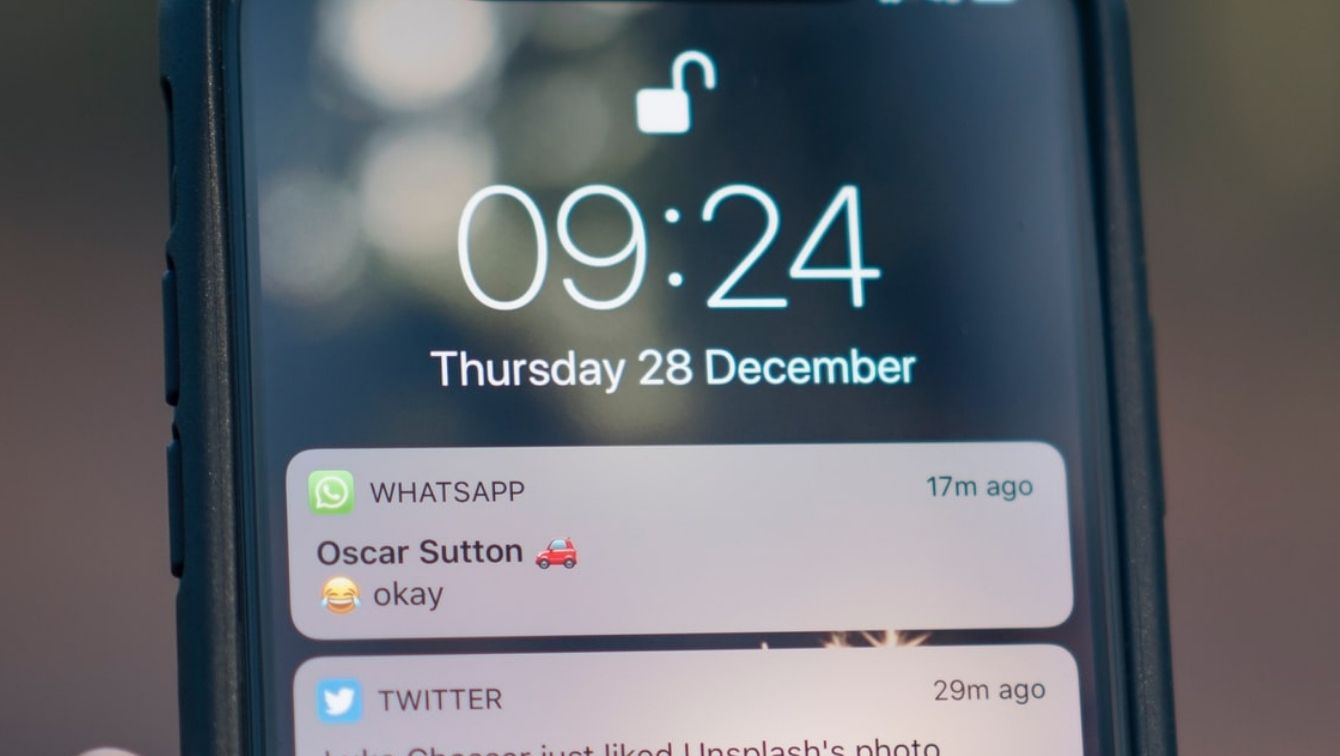
- Use GIFs in your phone to give a funny response to someone
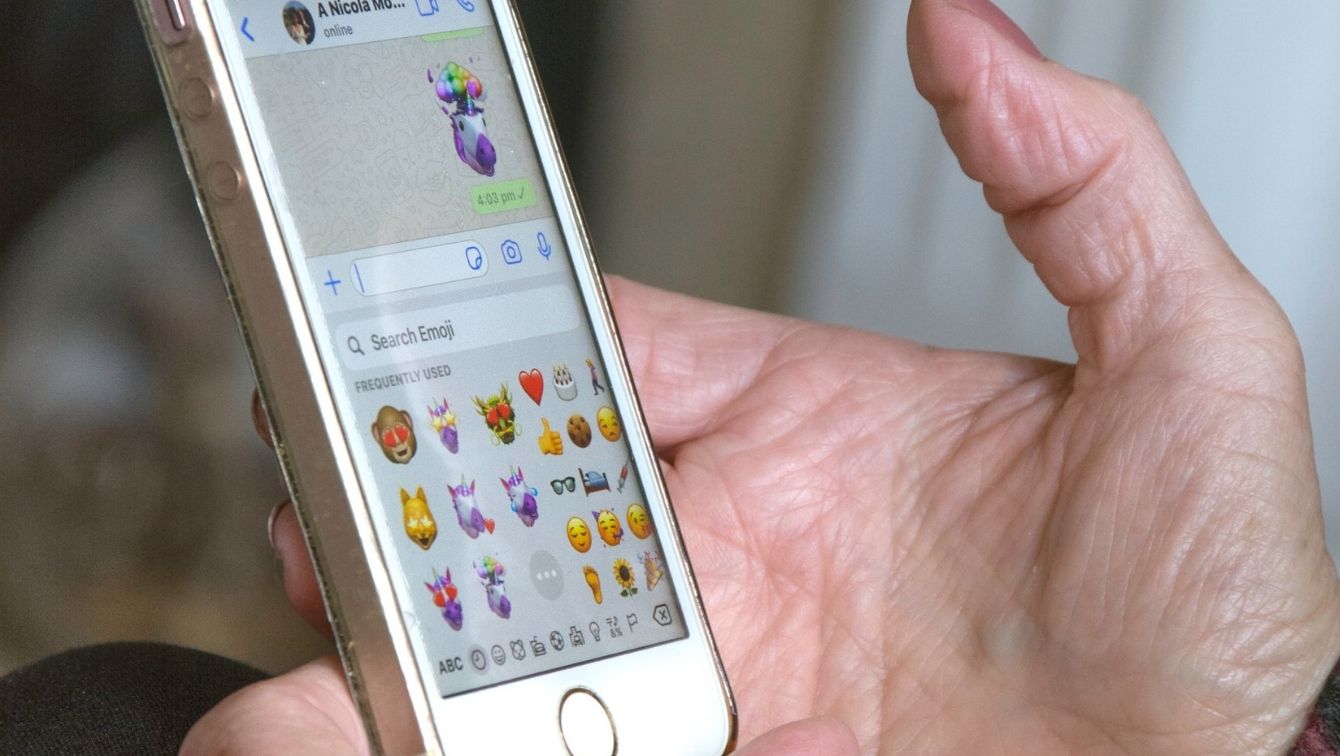
General conversation starters for any situation
There are many go-to conversation starters that can help you spark up interesting conversations with friends in almost any situation. Whether you struggle with small talk or just need tips on how to be better at conversations, here are some good conversation starters to use: [2]
- Smile, make eye contact, and give a warm greeting during in-person or video calls
Example: “Heyyy! Been a long time, it’s great to see you!”
- Make sure it’s a good time to talk before diving into an in-depth conversation
Example: “Did I catch you at a good time, or should I give you a call later on?”
- Look for things you have in common to relate, bond, and connect with people
Example: “I like your Star Wars shirt. I’m a huge fan. Have you seen the Mandalorian?”
- Start conversations on a feel-good note by focusing on something positive
Example: “I love the way you set up your office. Where did you get that print?”
- Use open-ended questions to get people talking more about themselves
Example: “What are you liking the most about your new job?”
- Look for feel-good topics that spark interest and enthusiasm in the other person
Example: “You mentioned recently you were excited about your kitchen renovation. How’s it coming along?”
- Stick to neutral topics or approach controversial topics in a sensitive way
Example: “I like hearing people’s take on current events, even when they’re different from mine. What do you think about _______?”
- Ask for input, advice, or feedback to get someone engaged in a conversation
Example: “I know you recently changed up your diet, and I’m looking to do the same, but there’s so many to choose from. Do you mind sharing what you’re doing?”
- Use ice-breakers questions in a group of friends to spark conversations
Example: “I’ve been making a list of top movies from last year. Any votes?”
- Share something personal to go deeper or get closer to a friend
Example: “Honestly, it’s been a pretty tough year for me because I’ve been stuck at home so much, and work’s been super busy. What about you?”
- Address the “elephant in the room” if there’s obvious tension or awkwardness
Example: “It seems like something just upset you. Are you OK?”
Final thoughts
Not everyone is a natural conversationalist, and a lot of people feel awkward, nervous, or like there’s nothing to talk about, even with their friends. Some people even avoid texting, calling, or talking to friends because they don’t know how to start a conversation, but this can make it hard to maintain your friendships. The conversation starters and tips in this article can help improve your social life by helping you make new friends and keep the friends you have.
Common questions
Below are answers to some of the most common questions people have about starting conversations with friends.
What do friends talk about?
Friends talk about many different topics, including things happening in their lives, current events, and shared interests and hobbies. Close friends might have deep conversations that include inner thoughts, feelings, and personal experiences they don’t share with others.
How can I become better at having conversations?
Conversation skills take time and practice to develop, so the best way to get better at talking to people is to start more conversations. Start slow by making small talk with a cashier or saying a quick hello to a neighbor or coworker, and gradually build up to longer conversations.
What should I do if I have nothing to talk about?
If you find that your mind goes blank during conversations or you run out of things to say, you can sometimes ask a question or even allow more silence to get the other person talking. The more they talk, the easier it will be to come up with things to say in response.
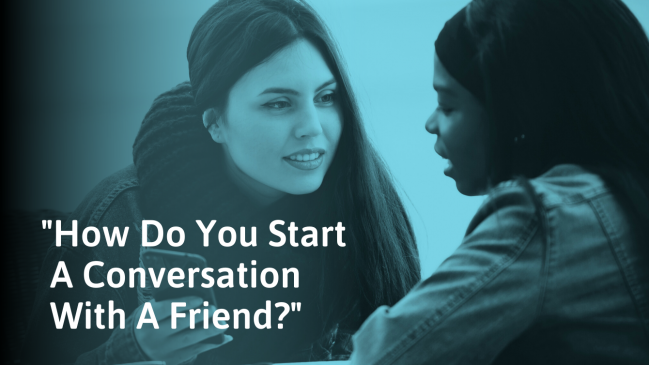
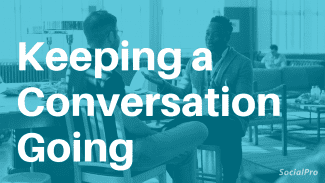

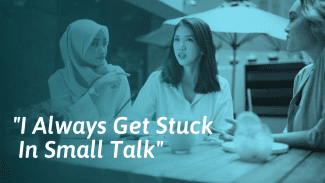




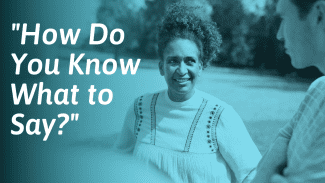
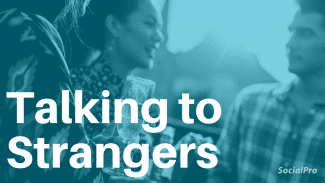
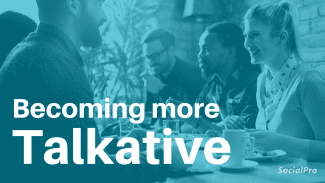
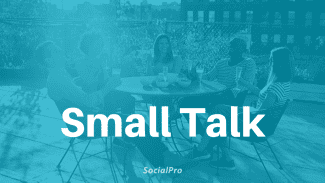

!!!!!!!!!!!!!!!!!!!!!!!!!!!!!!!!!!!!!!!!!!!!!!!!!!!!!!!!!!!!!!!!!!!!!!!!!!!!!!!!!!!!!!!!!!!!!!!!!!!!!!!!!!!!!!!!!!!!!!!!!!!!!!!!!!!!!!!!!!!!!!!!!!!!!!!!!!!!!!!!!!!!!!!!!!!!!!!!!!!!!!!!!!!!!!!!!!!!!!!!!!!!!!!!!!!!!!!!!!!!!!!!!!!!!!!!!!!!!!!!!!!!!!!!!!!!!!!!